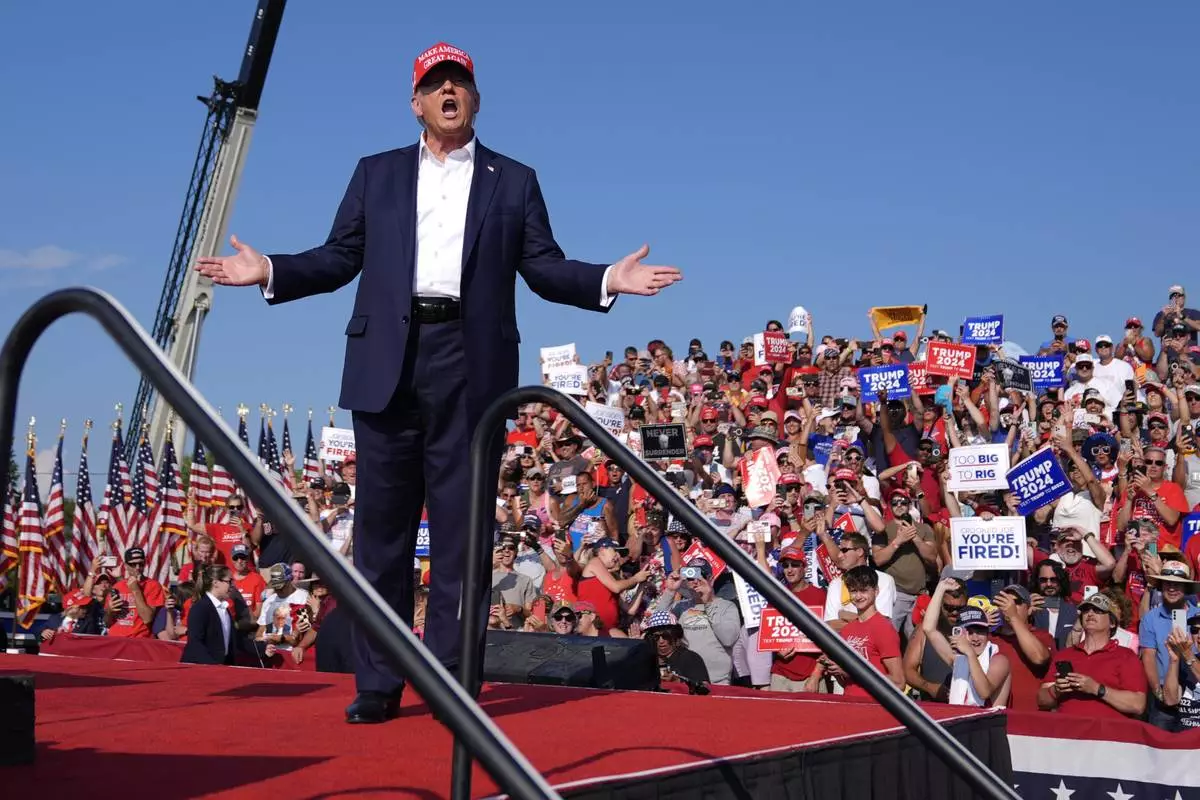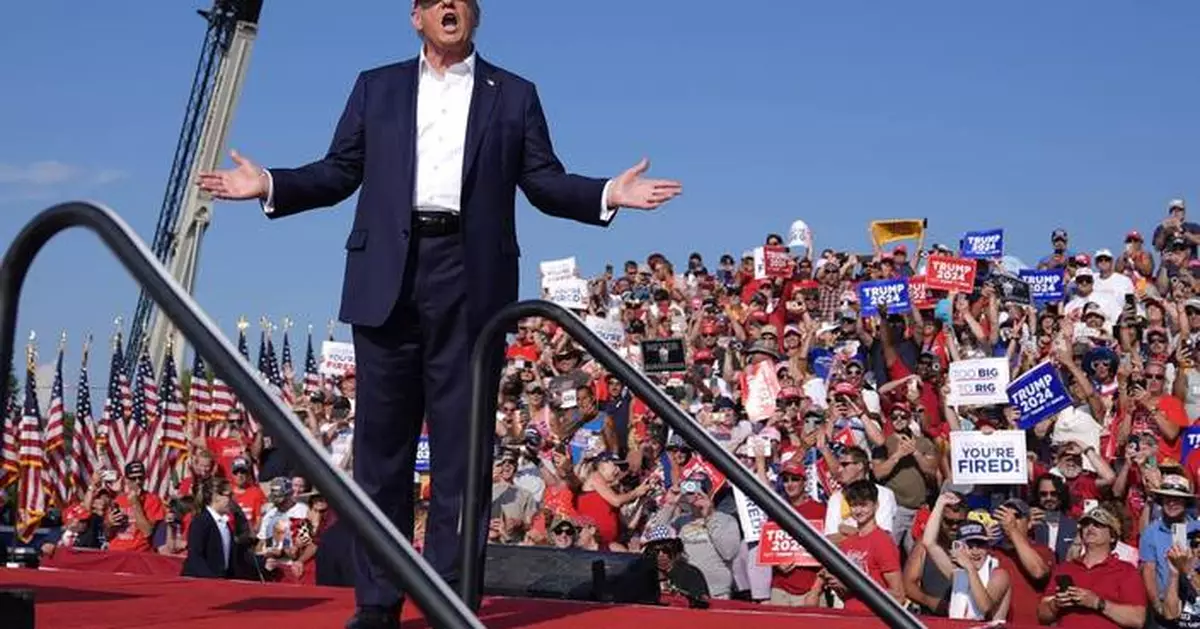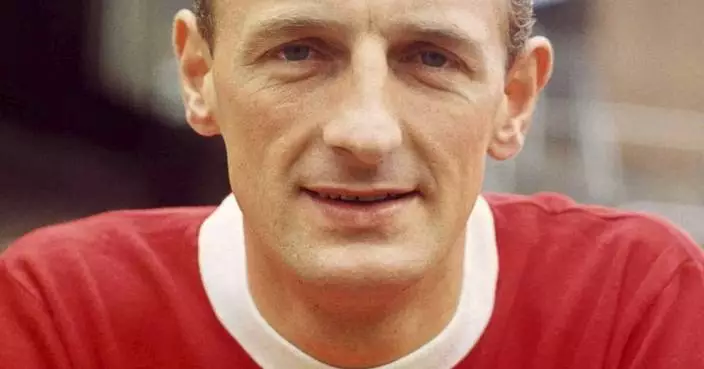FLINT, Mich. (AP) — The FBI is investigating suspicious packages sent to elections officials in more than a dozen states. State police have begun sweeps of schools in an Ohio community where conspiracy theories have fueled bomb threats. Violent rhetoric is rippling across social media.
And for the second time in nine weeks, a gunman apparently sought to assassinate Republican presidential nominee Donald Trump.
This year's campaign for the White House was always going to be fraught, the first presidential election to play out in the wake of an insurrection at the U.S. Capitol, an act of political violence steeped in the lie that the 2020 election was stolen.
But the series of unnerving developments has crystalized the volatility coursing through the country in the final weeks of the 2024 campaign. A political system long lauded for its resilience and durability is being tested, with law enforcement, political leaders and voters navigating complex and unfamiliar terrain.
In Flint, the Michigan city where a contaminated water crisis became a symbol of government ineptitude nearly a decade ago, some who gathered for a Trump event this week seemed almost resigned to a new and dangerous normal.
“I think it’ll probably happen one more time,” John Trahan, 62, from Grand Blanc, Michigan, said of the prospect of another assassination attempt.
America has confronted searing challenges before, from the Civil War to a presidential election decided by the Supreme Court. There were two assassinations and a wave of deadly riots before the 1968 presidential election.
But presidential historian Douglas Brinkley of Rice University said this moment is notable because it fuses widespread distrust of government with the proliferation of online conspiracy theories. Before a gunman camped outside a Florida golf course where Trump was playing on Sunday, the Republican's campaign was pressing a debunked rumor that Haitian immigrants in Springfield, Ohio, were eating people's pets.
“There’s a kind of uncertainty across the land,” Brinkley said, and the incident in West Palm Beach “takes an already tense election when democracy’s on the line and pours gasoline on the situation.”
The internet is providing much of that fuel. The Libertarian Party of New Hampshire posted on social media early Sunday that "anyone who murders Kamala Harris would be an American hero.” The group deleted the message without fully condemning political violence.
“We are not ‘non-violent,’” the group wrote in a post Monday. “It is morally correct to use violence to stop aggression.”
Elon Musk, the owner of X, shared a false report on Wednesday that explosives had been found near a Trump rally. Hours earlier, Musk posted, “Unless Trump is elected, America will fall to tyranny.” Earlier in the week, he wrote that “no one is even trying to assassinate Biden/Kamala.”
Musk later deleted the tweet about the assassination and implied he was joking, but not before tens of millions of people had viewed the post.
Despite it all, the presidential campaign moves forward and Election Day, Nov. 5, nears.
Harris quickly condemned the Florida incident and called Trump to offer her support. Democrats in Washington are joining with Republicans to push for stronger security around the former president.
But Harris’ team is not toning down its warning that a second Trump presidency represents a threat to democracy. During an interview with the National Association of Black Journalists on Tuesday, Harris noted that Trump is not alone in worrying about safety.
“There are far too many people in our country right now who are not feeling safe,” Harris said. “Not everybody has Secret Service."
“Members of the LGBTQ community don’t feel safe right now, immigrants or people with an immigrant background don’t feel safe right now," she continued. "Women don’t feel safe right now.”
Trump and some of his allies, meanwhile, continue to sow divisions — a marked shift from his brief calls for unity in the immediate aftermath of the assassination attempt at a Pennsylvania rally in July.
Fox News Digital published comments in which Trump, without evidence, blamed Democratic President Joe Biden and Harris for the weekend incident at his golf course and suggested their criticism of him had driven the alleged gunman. Then Trump posted on X that Harris, the Democratic presidential nominee, was a communist and “has taken politics in our Country to a whole new level of Hatred, Abuse, and Distrust.”
“Because of this Communist Left Rhetoric, the bullets are flying, and it will only get worse!” Trump warned.
Harris denounced the thwarted attack against Trump and had a brief phone conversation with him on Tuesday in which she expressed gratitude that he was safe and she condemned political violence. Trump described the call as “very nice.”
With early voting already unfolding in some states, more potential challenges are ahead. The FBI and other federal agencies said Wednesday that Iranian hackers sought to interest Biden’s campaign in information stolen from Trump’s campaign, sending unsolicited emails to people connected to the president before he abandoned his campaign in July.
There is no evidence that any of the recipients responded, officials said, but the development nonetheless raises the prospect of foreign interference in the election.
Harris’ campaign said it has cooperated with law enforcement since learning that people associated with Biden’s team were among the recipients of the emails. But Trump's campaign responded by pressing Harris and Biden to “come clean on whether they used the hacked material given to them by the Iranians to hurt President Trump.”
On the ground in Michigan, Trump's loyalists have embraced his anger. In some cases, they are afraid.
Kathy Hutchons, 68, of Waterford, Michigan, said the looming threat of further violence against Trump was “kind of scary.”
Her friends in line for Trump's town hall in Flint said they were scanning trees for signs of threats. They looked with suspicion at the drone overhead, although security officials later confirmed it was one of their safety measures.
“My husband said, ‘I don’t know if I’m going to let you go to this today,’” Hutchons said. “I said, ‘You don’t have a choice.’"
Associated Press writers Eric Tucker in Washington, Michelle L. Price in New York and AP Polling Editor Amelia Thomson-DeVeaux in Washington contributed to this report.

FILE - Republican presidential candidate former President Donald Trump arrives for a campaign rally, July 13, 2024, in Butler, Pa. (AP Photo/Evan Vucci, File)










